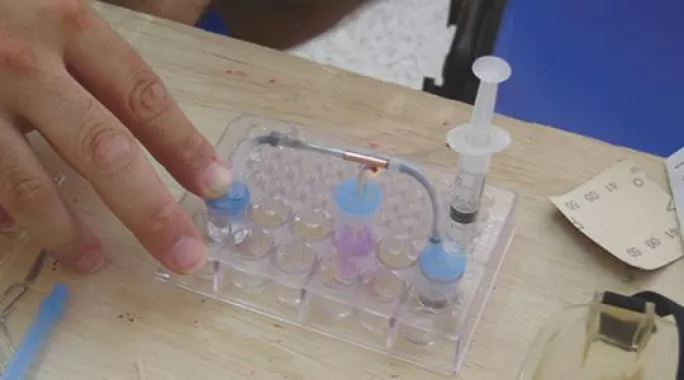
CBI: Practical experiments should count towards A-level science results
Britain’s biggest business lobby group has joined leading scientists and British universities in fighting to ensure that practical experiments continue to count towards A-level science results.
TES can reveal that the Confederation for British Industry (CBI) has warned that Ofqual’s proposal to stop marks for practical work contributing to overall A-level grades is “not acceptable to business”.
“It would be wrong for a student to receive a top grade in a science subject without displaying strong, relevant practical skills,” the CBI states in its response to the official consultation being run by Ofqual, England’s exams regulator, which closes today.
“While there are obvious challenges in the design and assessment of these skills, their importance means that the removal of marks from the final grade would be a significant step backwards and could undermine employer confidence in the qualification.”
At the moment, 20-30 per cent of overall grades in A-level biology, chemistry and physics are calculated according to the marks candidates receive for their practical coursework.
But Ofqual wants that to change for reformed A levels - to be introduced from 2015 - because it has concerns about coursework cheating and over-generous marking by teachers.
The regulator says that the new qualifications should be 100 per cent exam assessed. A requirement for practical skills would remain, but the assessment of them would be reported separately from the main A-level grades, and would not contribute towards them.
A high powered group, representing the scientific establishment and the UK’s universities, has already condemned Ofqual’s plan as “baffling”.
The leading scientists and academics claim that “an A-level system in which science students can achieve top grades without any demonstration of translating knowledge into practice” would misrepresent “the nature of science” and leave students “ill-equipped” for further scientific study.
Influential scientific charity the Wellcome Trust also says that Ofqual’s proposals are “extremely worrying” and has cited an Ofsted report published in November, after the A-level consultation began.
The inspectorate’s report warned that “too many school leavers are not well-enough equipped scientifically with practical, investigative and analytical skills” and said the government should ensure that such skills were “assessed as an integral part” of the reformed A levels.
However Ofqual believes that the objectors have failed to appreciate the educational benefits that it says would come from freeing up practical science work from assessment.
Glenys Stacey, Ofqual chief regulator, wrote this month: “Some have taken our proposals to mean we don’t value practical work in science.
“In fact, it’s quite the opposite. We are not saying practical skills are unimportant, we are saying they are so important that the assessment arrangements should not adversely influence (limit) what students experience and learn.”
Register with Tes and you can read five free articles every month, plus you'll have access to our range of award-winning newsletters.
Keep reading for just £4.90 per month
You've reached your limit of free articles this month. Subscribe for £4.90 per month for three months and get:
- Unlimited access to all Tes magazine content
- Exclusive subscriber-only stories
- Award-winning email newsletters
You've reached your limit of free articles this month. Subscribe for £4.90 per month for three months and get:
- Unlimited access to all Tes magazine content
- Exclusive subscriber-only stories
- Award-winning email newsletters




